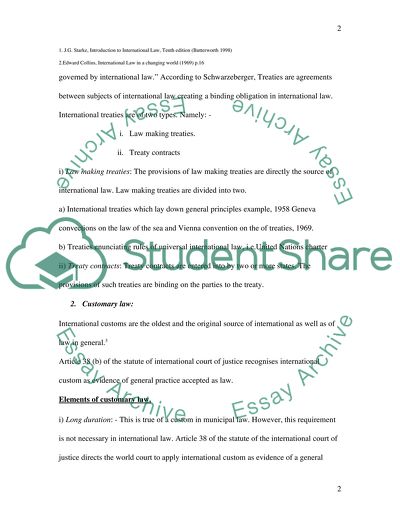Cite this document
(“Sources Of International Law Essay Example | Topics and Well Written Essays - 2000 words”, n.d.)
Retrieved from https://studentshare.org/miscellaneous/1506415-sources-of-international-law
Retrieved from https://studentshare.org/miscellaneous/1506415-sources-of-international-law
(Sources Of International Law Essay Example | Topics and Well Written Essays - 2000 Words)
https://studentshare.org/miscellaneous/1506415-sources-of-international-law.
https://studentshare.org/miscellaneous/1506415-sources-of-international-law.
“Sources Of International Law Essay Example | Topics and Well Written Essays - 2000 Words”, n.d. https://studentshare.org/miscellaneous/1506415-sources-of-international-law.


